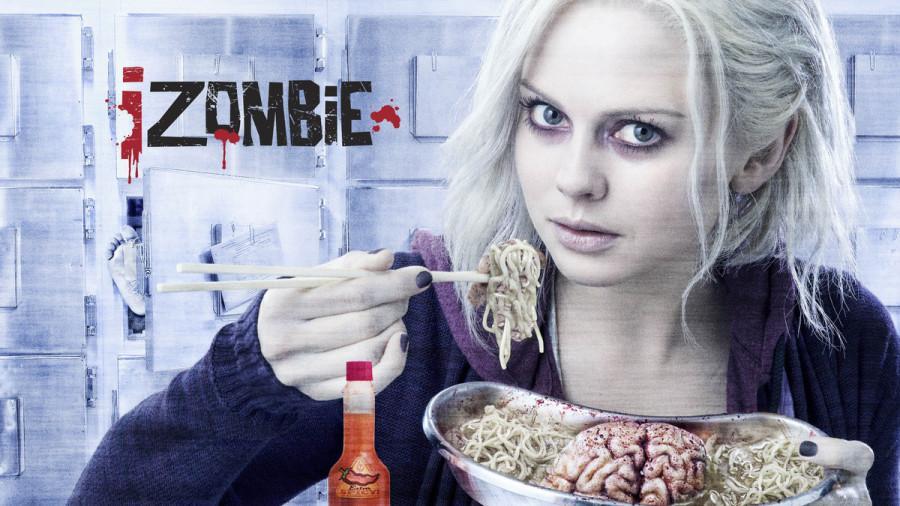From the writers and creators of “Veronica Mars,” the CW’s newest show “iZombie” is a fun new twist on the now ubiquitous zombie myth.
Although it is inspired by a graphic novel of the same name, “iZombie” takes some liberties with the story; making Liv (Rose McIver) a medical examiner’s assistant rather than a gravedigger, and having her work more closely with the police department, all while she is sneaking brains to eat so that she doesn’t become “meaner” and less herself. It’s an interesting mix of a more familiar zombie narrative, with the brain-eating and haunting presence of David Anders as Liv’s “creator”, with a weekly procedural narrative.
What is most interesting about this show is how it plays with the idea of the humanity inside a “creature” that our culture has typically associated with mindlessness and violence. A prime example of this is the fact that the show switches up the traditional zombie myth and has Liv gain some of the abilities and memories of the person whose brain she’s just eaten. With all the narrative tropes surrounding zombies in shows like the Walking Dead, it’s refreshing to see a reversal story about the ability of the “diseased creatures” to hold onto their humanity, empathize with humans, and use that to make the world around them better. There are endless possibilities going forward for the show to look both at how Liv works through the struggle and desire to hang on to her humanity, as well as the people around her’s reaction to learning about her condition.
The show has done a great job in these first two episodes of showing the support system—Peyton (Aly Michalka), Major (Robert Buckley) and her mom, Eva (Molly Hagan)—Liv has from her old life, however skeptical they may be about her “transition,” as well as the new people she met after she became a zombie.
Rahul Kohli as Dr. Ravi Chakrabarti, the medical examiner Liv works for, is particularly delightful. He acts both as the comic relief of the show, but also, as the only one in Liv’s inner circle who knows she is a zombie. He is also this kind of touchstone for her, an outlet for her to be open about who she is. The show made a good decision in introducing someone so quickly who not only knows about Liv, but is her friend and confidant. Having the main character go too long on their own, especially one who is going through something so new and traumatic, can become grating for the viewer. It’s a welcome change of pace that the show skipped that stage altogether.
For anyone familiar with “Veronica Mars,” “iZombie” does hold on to some of the storytelling tricks Rob Thomas and Co. used on that show. The dialogue is sharp and witty, and Liv’s voiceover is scattered throughout the episode. The first person narrative works just as well here as it did on “Veronica Mars,” but the nuance and freshness this show has comes from Liv herself. She’s less cynical about the world, more apt to accept her fate and not defeat. Although she seems to eventually fall into the criminal justice game, it’s not as organic as it was for Veronica.
For Liv, there is a real sense of empathy that comes from her desire to find justice that is a result of her being able to literally experience what the victim experienced. In the first episode, there is a visible shift in Liv’s demeanor and attitude toward Detective Babineaux’s (Malcolm Goodwin) investigation when she sees how the victim (whose brain she’s eaten) was killed. Instead of this pure, untouched drive for justice, Liv’s approach is a really fascinating look at the power of victims’ experience, the role of empathy in justice and a hypothetical fantasy about what would happen in victims’ voices were privileged even beyond the grave. Liv, acting as a tie to both living and dead worlds, is not only a symbolic representation of those themes, but also embodies a very real and complex narrative about what it means to truly live.
As someone who isn’t particularly swayed by the gratuitous violence and straightforward narrative commonly associated with zombie stories, I was pleasantly surprised by how much I enjoyed this show. With only two episodes in, it’s hard to know where the show will go, but it’s off to a great start.

